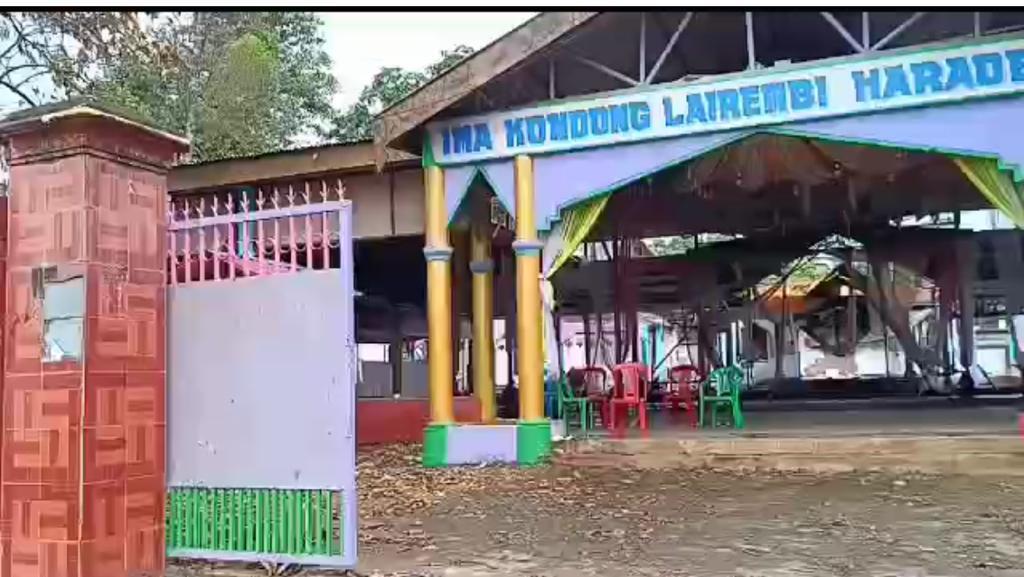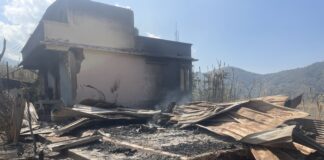By: S. J. Meetei
The turmoil in Manipur has persisted for almost four months now, with little sign of recovery on the horizon. The delay in witnessing signs of improvement can be attributed to the numerous propaganda efforts or victim narratives put forth by the Kuki communities. Since the onset of the tumultuous period, our Kuki compatriots have engaged in various propaganda campaigns, frequently shifting their narrative like a chameleon changes colours.
This chameleon-like behaviour serves as an illustration of the lack of authenticity behind their demands. Their objectives remain ambiguous, and the reasons for their suffering appear muddled. Rather than adhering to the elected government, they have even sought intervention from entities such as the EU and Israel, which have zero knowledge of the issues.
Initially, they portrayed themselves as victims of Christian discrimination, the churches being burnt, then as tribal minorities, and later as indigenous people and so on, unjustly labelled and marginalized as illegal immigrants. This shifting stance lacks solid grounding and leaves their intentions shrouded in uncertainty. This fact becomes even more evident when observing their intent to conduct mass burials on a government-designated site, originally intended for the advancement of state projects. The progressively deteriorating conduct of the Kuki community inevitably steers them towards their own downfall.
I have also been pondering the actions of Kuki intellectuals who have significant influence within their society. Rather than guiding the rioters onto a righteous path, they have unfortunately ignited the flames by perpetuating misguided narratives. It leads me to wonder if this entire turmoil has been meticulously orchestrated. I’ve observed numerous speakers hailing from the Kuki communities, who are regarded as intellectuals among them. However, regrettably, I have not come across a single speaker who attempts to advocate for a cessation of these riots, emphasizing the shared suffering of both communities. Instead, these self-proclaimed intellectuals have chosen to narrate a one-sided and distorted story, tainted by a multitude of falsehoods and fabricated accounts.
It wouldn’t be an exaggeration to state that the current administration in Manipur has achieved commendable feats. Upon closer examination, it becomes evident that under the current leadership, both before and leading up to the unfortunate events of May 3rd, Manipur has undergone significant positive transformations. The state has emerged as a dynamic and progressive entity. A journey to Manipur, particularly to its picturesque hill regions, feels akin to traversing the roads of a world-class city.
Who among us could have envisioned that Manipur would host the Miss India pageant or become a magnet for G20 delegates? The establishment of a railway line, a sports university, and a medical college in a hill district seemed like distant dreams, yet they have become reality. The announcement of the establishment of an AIIMS in Manipur marks a significant advancement for its residents. The strategic implementation of the Look Act East policy,
aimed at fostering cross-border partnerships with numerous Southeast Asian nations, holds the promise of future advantages for the region’s holistic growth. This particularly bodes well for the people of Manipur, ushering in a positive trajectory for their overall development. The present government has written an array of achievements, including mandatory visits to hill areas as part of an extensive outreach initiative aimed at holistic development for residents of these highland regions. Numerous colleges have undergone a transformation into government-run institutions. Regular appointments of officers through the public service commission have been instituted, and Dhanamanjuri College has been granted university status, among other accomplishments.
The current Chief Minister enjoys popularity within the Kuki communities for his extensive outreach initiative and development of hill areas, until his resolute stance against the illegal cultivation of poppy and the drug trade. However, I find it perplexing that Mr Karan Thapar, in his interview on the Wire with various intellectuals from Manipur, consistently raises questions about the potential replacement of Chief Minister, Biren Singh. The inquiry seems to lack a logical foundation and instead appears to be influenced by the demands of a small group of dissatisfied citizens who might not have valid reasons for calling for the Chief Minister’s removal. Such a line of questioning hardly contributes constructively to the discourse and is arguably counterproductive for the interviewer in the present Manipur mayhem.
Contrastingly, the Meitei population has been unwavering in their objectives since day one.
Their demands, such as implementing the National Register of Citizens (NRC) and combating illegal narco-terrorism, have remained consistent and clear. The Meitei community’s frustration has persisted, unlike it did in the past. Regrettably, the Kuki communities, in their pursuit of self-interest, have propagated countless unfounded allegations, tarnishing the rich heritage of the Meitei legacy, from sacred sites like Koubru to Thangjing, causing immeasurable damages.
The ongoing mayhem is further aggravated by an array of fabricated social media campaigns orchestrated by our Kuki brethren. The reverence humans hold for the unseen forces of divinity demands recognition and respect. It is an indisputable fact that any community would react strongly if a holy place like Koubru, a sacred ground cherished by the Meitei for countless millennia, is desecrated merely for the purpose of wrongful activities. This sentiment extends to other holy sites of the Meitei, including but not limited to Thangjing
Moreh Ima Kondong Lairembi and Kongba Maru etc. Our Kuki brethren seem to overlook the profound emotions woven into every blood of Meitei identity. Furthermore, the Kuki brothers failed to grasp the deep-rooted significance of forests in the Meitei way of life. Unlike our Kuki brethren, the Meitei hold the utmost respect for their forests. A prime example of this devotion can be seen in the worship of Umang Lai, where respect for the forest exemplifies its integral role in Meitei’s existence.
If the flame continues to burn unabated after nearly four months, there might be hidden motives driving its persistence. As a member of the Meetei community, it is imperative that we maintain a watchful stance towards these ongoing activities as none knows “Behind the Curtain”.
The statements, views and opinions expressed in this column are solely those of the author and do not necessarily represent those of the NEA.


